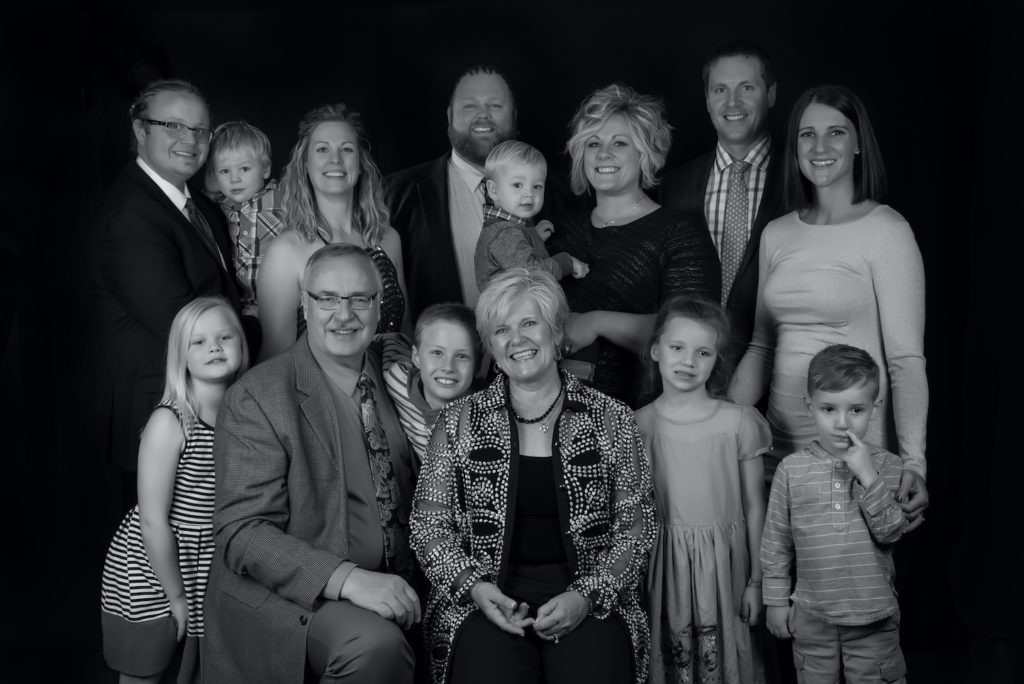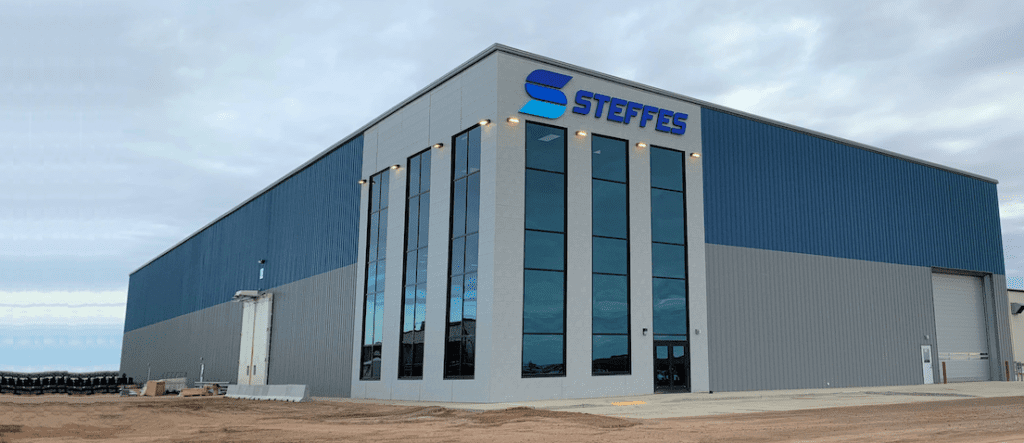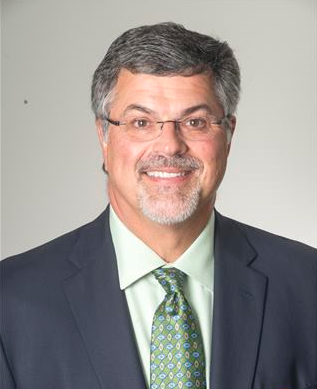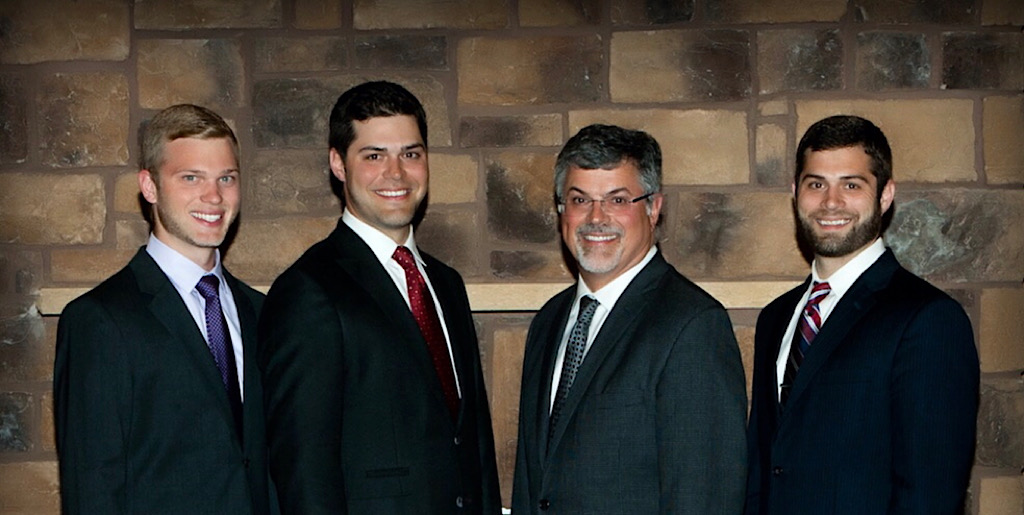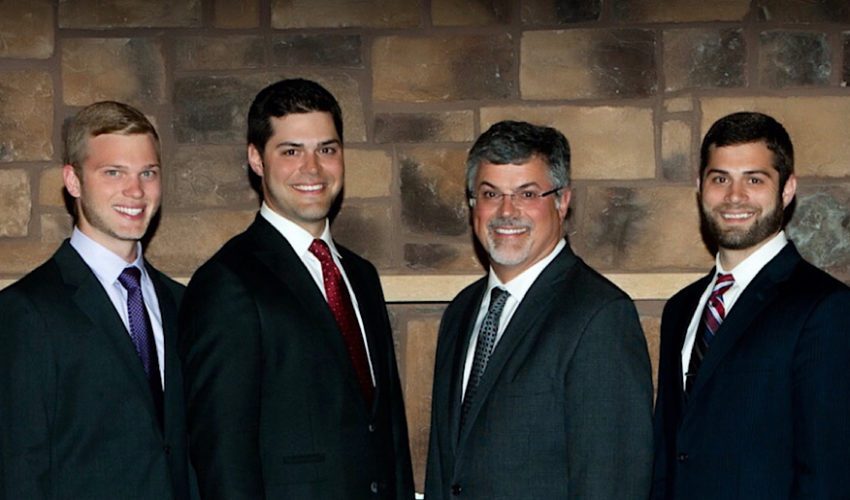Family firm helps family businesses navigate transitions, planning
Aug. 19, 2020
This paid piece is sponsored by The Prairie Family Business Association.
The Steffes family knew it was time to start working on transitioning ownership of its business, Steffes Corp., to the third generation.
But the family had concerns: how to cash flow it, minimize tax and prepare the next generation. It all seemed complex.
Then, the Steffes family connected with Schwan Financial Group, an Aberdeen-based second-generation family business that helped them achieve their objectives.
“I talk in terms of them saving our company,” founder Paul Steffes said.
“We had worked with other groups in the past that had partial solutions, but John Schwan came in, and he’d worked with well over 100 families similar to ours, and he really understood what would help us.”
Schwan helped Steffes set up a number of dynasty trusts to transition the business, “and it really has worked out well,” Steffes said.
“So my children are buying the company, but it doesn’t put a great cash burden on the company as they’re buying it. Once we understood the tool, it really is a beautiful piece that worked, and our chances of a successful transition at Steffes have been greatly enhanced.”
The two began working together about eight years ago.
“Prior to working with them, it seemed like the only option was for me to get old and sell the business, and with his tools, we’re going down the path of building an infinite company that can potentially last for generations,” Steffes said.
The Steffes family and Schwan Financial Group will detail the experience and share expertise with others at an upcoming Prairie Family Business Association webinar at 10 a.m. Aug. 26.
We sat down with John Schwan, founder of Schwan Financial Group, for a preview and to learn more about this unique family firm.
How did your family become involved in this industry?
The back story is I started this 37 years ago, so I was a young man at 24 or 25, and my father told me to get into financial services of some kind. He was a longtime educator and coach. I started out in the industry because I wanted to work for myself – that was the draw. Then, getting into working with privately owned family businesses became an obsession because of all the challenges they face: succession planning, entity structure, tax, training. When you own a business, there’s a multitude of challenges, and that really intrigued me – showing people how to enjoy their business, grow their business and transfer it. Our tagline is “We help people understand, grow, secure, enjoy and distribute their family business or resources.”
How has the firm evolved with its generational transitioning? Are there best practices you implemented that you now share with others?
I have three sons in the business currently, and we’re fully engaged in a process ourselves of what the next 50 years look like. We’ve discovered many best practices: the regular routine of working on the businesses versus in the business and putting the right people in the right seat. We’re continually building out and evaluating and having weekly team meetings. All those standard non-sexy things work: communication, great processes, systems that are sustainable. We’ve been creating these for many years, but not we’re trying to fine-tune it and get it to another generation or two.
How would you describe the services you offer? What sets them apart?
We deal with people because economics are important, but we also help our families with the “psychonomics” of why to do things, how it makes sense, how you treat the people in the business different than those who aren’t. There are big emotional challenges that come with it, like how do you step aside, so we deal in both areas.
Those are our deliverables, and we also provide a monthly calendar that describes to people what they need to take action on in regard to their master plan. It’s simple but sophisticated. We have found ways to tell what’s valuable, so calendaring what to do with the plan is key because execution brings results. And we’ve trademarked a concept called Forward Hindsight, and we will model that financial plan out 10, 20, 30 years and create a benchmark, and that brings people a lot of peace of mind knowing it will work. We offer that for individuals as well as businesses because we’re in a “show me” world versus a “tell me” world.
You work with many family businesses, including Steffes and other members of the Prairie Family Business Association. What kind of relationships have you been able to form?
I think the association and what we do builds lifetime connectors because of the commonality of the challenges but also what a bigger, better future looks like. We’re all working toward some ideal, and the standard is to know there will be challenges and change, but these are people who have felt the same way or had similar experiences, and those are lifetime connectors.
Are there some common questions you receive from family businesses or common issues you help them address?
Often, a business will ask, how do we know we can do something? Can they exit and transfer? Can they sell? With Steffes, they thought it was impossible, but they just needed to see a strategy that they can execute. And we provide enough good analysis and intelligence to make a choice. We talk about why to plan versus how to plan. We’re trying to understand what people want to achieve because in that ideal result are also four or five barriers. And then you can prove there’s a solution, and if everyone is on the same page, we can execute and overcome those barriers.
What kinds of issues have arisen for you and your clients given the events and uncertainty of this year? Are there some key approaches you’re taking to address them?
Many years ago, we started doing virtual meetings, so we’ve facilitated technology for several years, and in COVID, we had to move 40 people out of the office to communicate and function seamlessly. But as far as our clients, we have tried to make them feel we’ve operated uninterrupted. We’ve increased communication significantly, we used GoToMeeting or Zoom extensively externally and internally, and we’ve improved our communications to make sure things were getting done. We have really worked on focusing on internal communications to facilitate a seamless work environment and execution for our family business clients.
What can attendees expect to learn at your upcoming webinar?
I think what people are going to find out is just how to organize the issues and manage them to a specific outcome that you’re looking for, so they will discover there’s a lot of commonality in the challenging issues and definitely a way to create a road map for success and accomplishing these things. And then to find out that although people did very high-level planning, it didn’t interfere with the fluidity of these existing businesses, and they still got to design a great succession plan and estate plan at the right time.
What’s next for Schwan Financial Group? How do you see your own family business continuing to evolve?
We’re going to continue to grow our business in the way our clients advise us to shape it and what they view as most valuable. And we hope to continue to add great people and train them into our proven methodology and processes that are client-focused.
To register for the Aug. 26 webinar, click here.
The Prairie Family Business Association is an outreach center of the USD Beacom School of Business.

